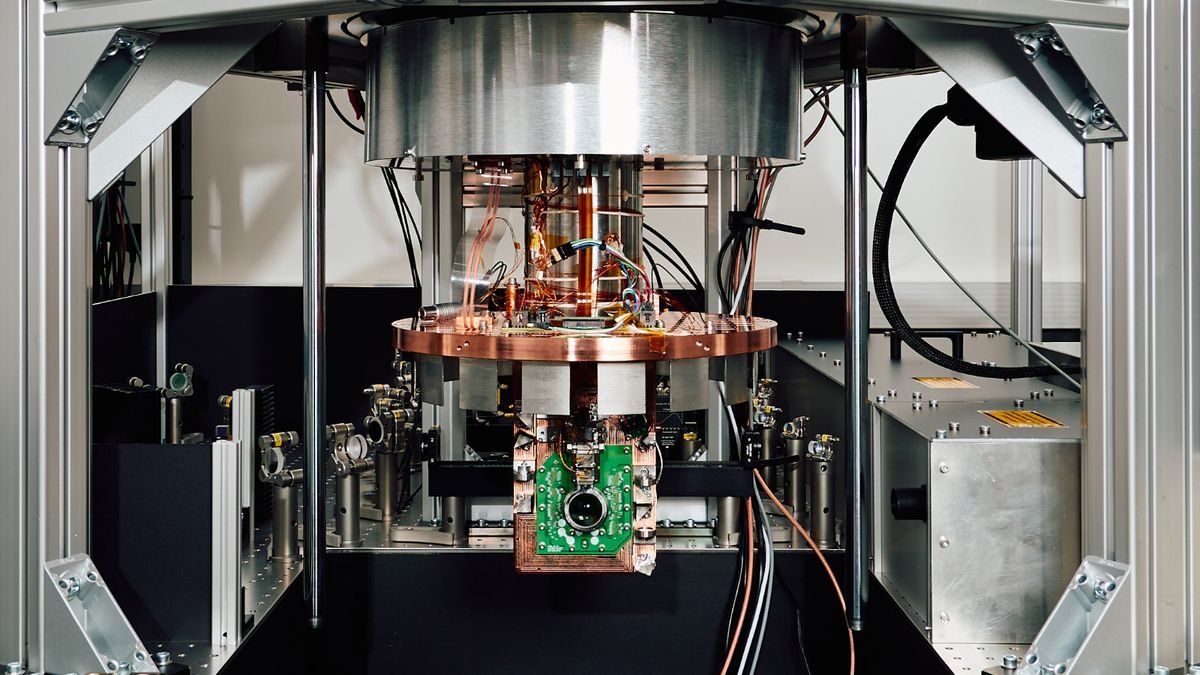British scientists say they have developed the world’s best-performing quantum computing chip — and it could find its way into a “usable” quantum computer by 2027.
The new chip uses an integrated control unit to regulate the state of qubits and, unlike typical quantum chips, can be mass produced using conventional semiconductor manufacturing processes.
Key to the technology is how it handles quantum bits, or qubits, the fundamental units of information in quantum computing.
One approach to controlling qubits in quantum computers is trapped ion technology. This involves isolating individual charged atoms (ions) in an electromagnetic field — known as an ion trap — and using lasers to precisely control their quantum state. Doing so allows ions to be manipulated and used as qubits to store and process quantum information.
While trapped ion technology is effective at keeping qubits stable, it is not scalable or practical due to the cost and complexity of laser technology.
Related: ‘Quantum-inspired’ laser computing is more effective than both supercomputing and quantum computing, startup claims
But a new chip developed by Oxford Ionics eschews lasers entirely, using a patented “Electronic Qubit Control” system to regulate the state of trapped ions. Because everything needed to control the qubits is integrated into the silicon, the new chip is more reliable and easier to produce at scale, the scientists said in a statement.
In tests, the new chip delivered twice the performance of existing record-holders while using 10 times fewer qubits, the researchers claimed. The results were published July 10 on the pre-print server arXiv.
“When you build a quantum computer, performance is as important as size — increasing the number of qubits means nothing if they do not produce accurate results,” study co-author Tom Harty, co-founder and CTO at Oxford Ionics, said in the statement.
“We have now proven that our approach has delivered the highest level of performance in quantum computing to date, and is now at the level required to start unlocking the commercial impact of quantum computing. This is an incredibly exciting moment for our team, and for the positive impact that quantum computing will have on society at large.”
‘Rocket ship approach’
For the study, Oxford Ionics microfabricated an ion trap measuring just a few micrometres across, which formed the basis of its quantum chip.
The researchers measured the chip’s performance by how accurately it could perform operations known as gate fidelities — a measure of how closely a quantum gate (the building blocks of quantum circuits, similar to a logic gate in classical computing) matches its ideal theoretical operation.
The scientists said their chip achieved single-qubit gate fidelities of 99.9992% and two-qubit gate fidelities of 99.97% — the highest reported by any quantum chip so far, they claimed — without the need for error correction.
“From the outset, we have taken a ‘rocket ship’ approach — focusing on building robust technology by solving the really difficult challenges first,” study co-author Chris Ballance, co-founder and CEO at Oxford Ionics, said in the statement. “This has meant using novel physics and smart engineering to develop scalable, high performance qubit chips that do not need error correction to get to useful applications, and can be controlled on a classic semiconductor chip… We are now able to focus on the commercialisation of our technology and delivering useful quantum computing at scale.”
Oxford Ionics will deliver the chip architecture to the UK’s National Quantum Computing Centre (NQCC) as part of its Quantum Computing Testbed program.
In the statement, Michael Cuthbert, director of the NQCC, said: “We are really excited to see both how this will be deployed, and how we will be able to use these ultra-high performance qubits for the development of algorithms and new applications.”



